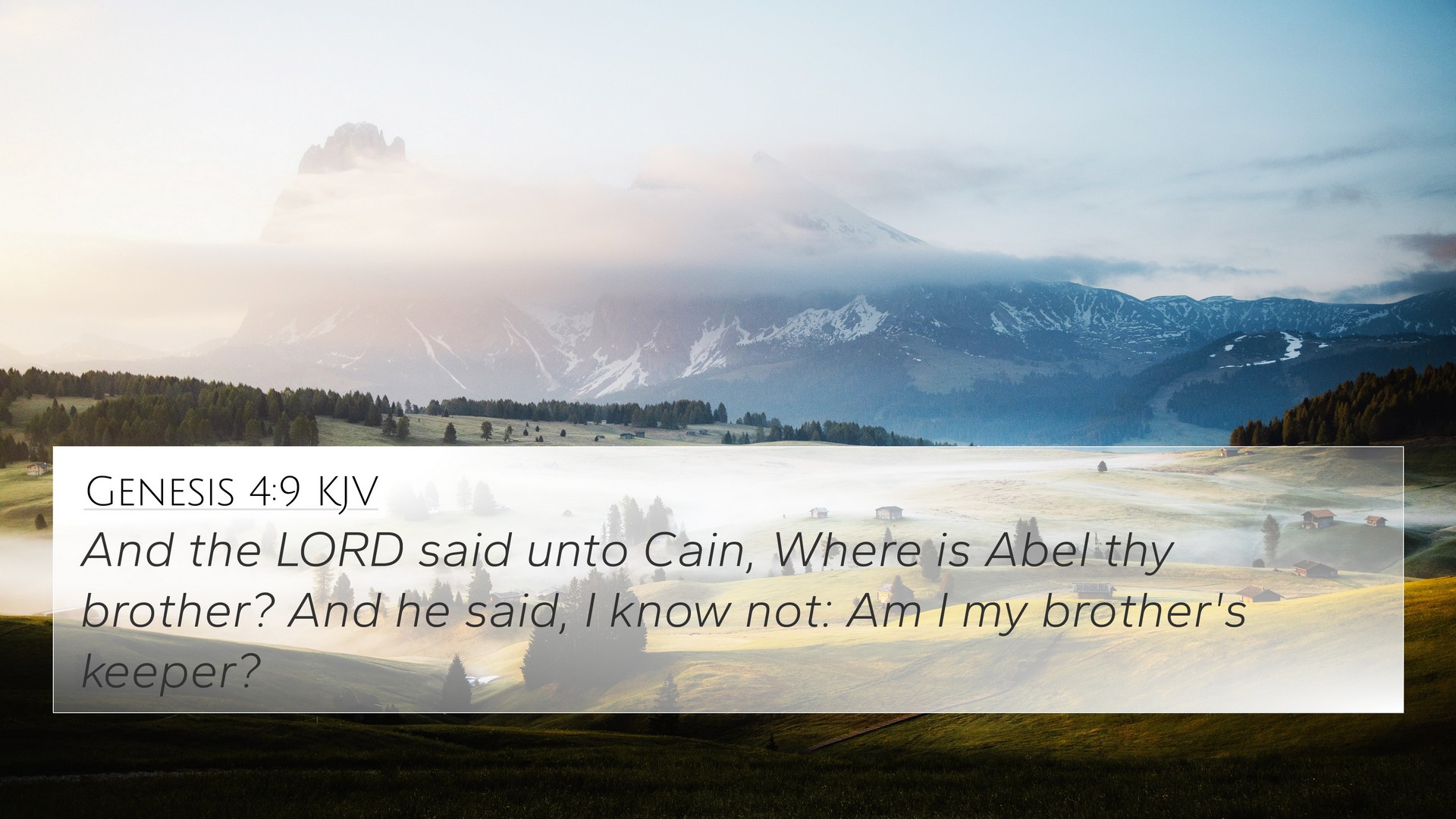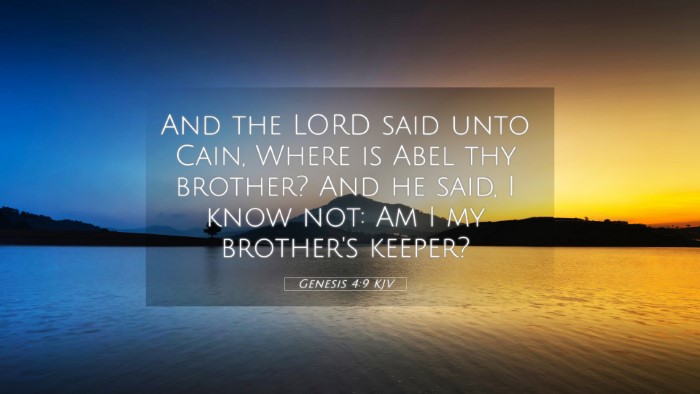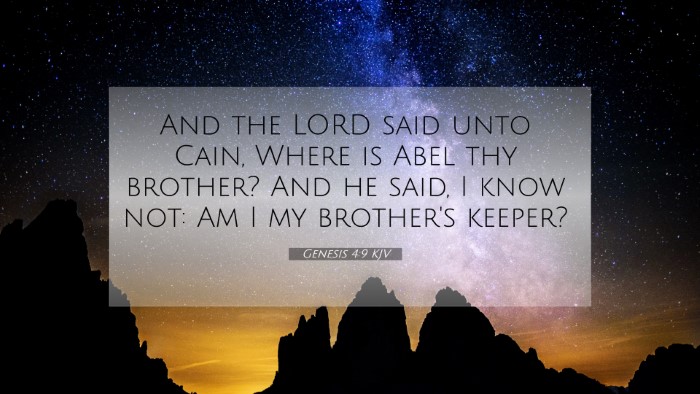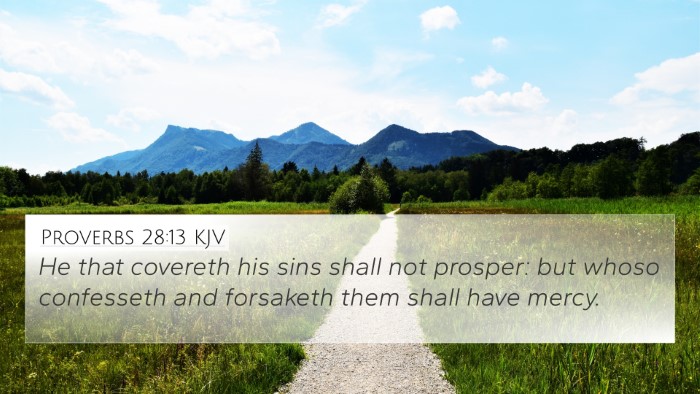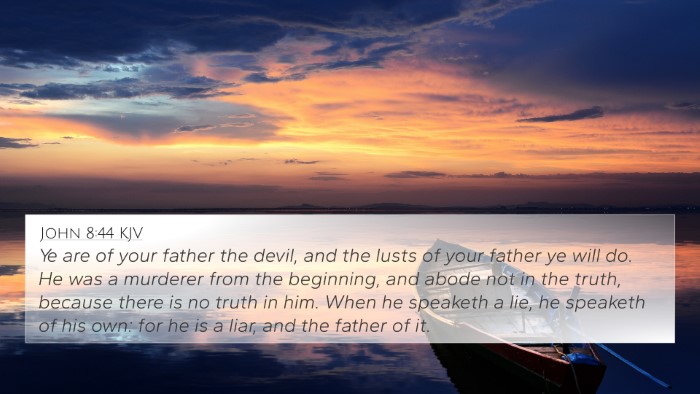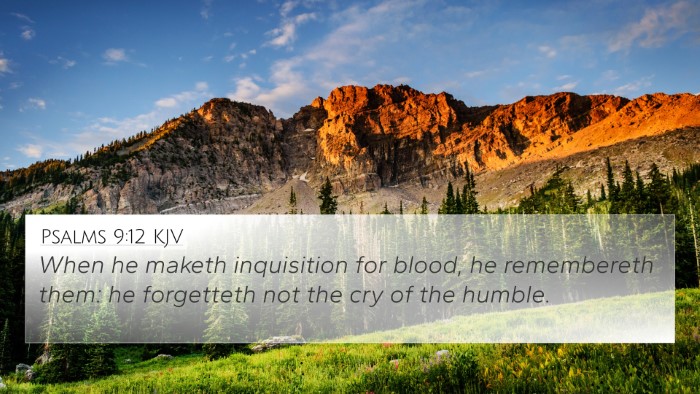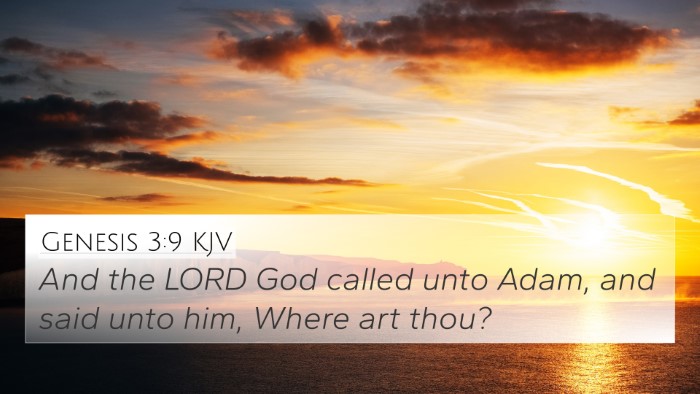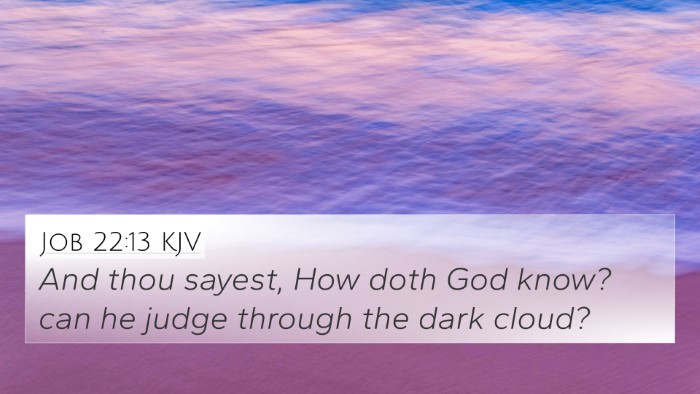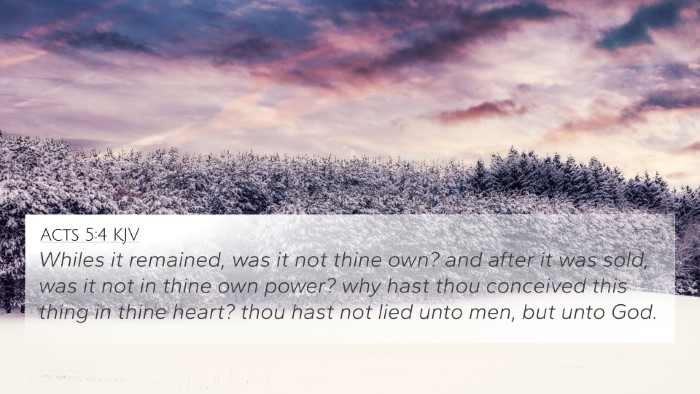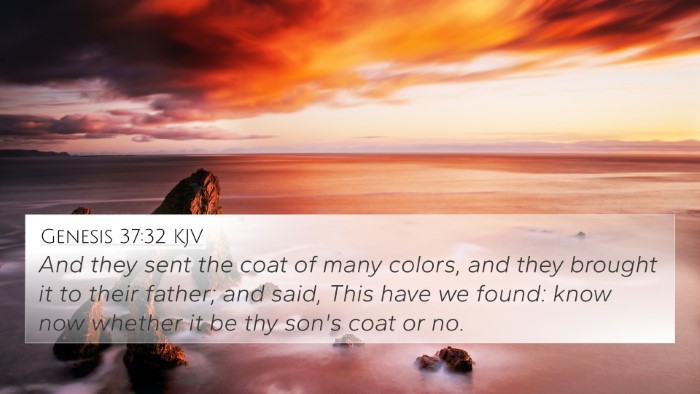Understanding Genesis 4:9
Genesis 4:9 states: "Then the Lord said to Cain, 'Where is your brother Abel?' 'I don't know,' he replied. 'Am I my brother's keeper?'" This verse holds deep implications regarding responsibility, morality, and the relational dynamics between individuals in their communities.
Summary of Insights
Public domain commentaries offer rich interpretations of this verse:
- Matthew Henry: Henry emphasizes the moral failure of Cain in both his act of murder and in his subsequent denial of responsibility for Abel's well-being. Cain's flippant response reveals a heart hardened by sin and a lack of remorse, challenging us to consider our own accountability to one another.
- Albert Barnes: Barnes highlights the significance of God's inquiry, noting that it serves to bring Cain to reflection. His avoidance of guilt through a rhetorical question illustrates a common human tendency to sidestep responsibility when faced with wrongdoing.
- Adam Clarke: Clarke focuses on the phrase "Am I my brother's keeper?" as a profound expression of Cain's indifference. He suggests that by this remark, Cain not only avoids the reality of his actions but also questions the societal obligation we have to care for one another.
Thematic Connections
This verse draws attention to several themes in Scripture, including:
- The nature of sin and its consequences
- The responsibility we hold towards others
- The importance of honest communication with God
- God’s pursuit of justice and accountability
Cross-References to Genesis 4:9
In studying Genesis 4:9, it is crucial to consider other biblical passages that emphasize similar themes:
- Luke 10:36-37: Jesus’ parable of the Good Samaritan highlights the principle of being a neighbor, reinforcing the idea of responsibility towards others.
- Matthew 25:40: Jesus teaches that caring for the least of these is akin to serving Him, indicating our obligation to care for one another in a communal context.
- James 4:17: This verse places emphasis on knowing the right thing to do and not doing it, further illustrating Cain’s moral failings.
- Ezekiel 33:6: God holds watchmen accountable for the lives entrusted to their care, resonating with the idea of shared responsibility.
- Galatians 6:2: Paul instructs believers to carry each other's burdens, emphasizing interdependence in the Christian community.
- Proverbs 24:11-12: These verses advocate for rescuing those who are led to the slaughter, reinforcing the biblical call to protect and care for others.
- Romans 14:7-8: Paul asserts the communal nature of our lives as believers, indicating that we do not live for ourselves alone.
How Genesis 4:9 Relates to Other Scriptures
Understanding the connections between this verse and others enriches our comprehension of biblical teachings:
Genesis 4:9 can be linked through the lens of accountability and moral conduct as seen in:
- Downfall of Adam and Eve (Genesis 3): The initial sin sets the stage for Cain's actions and reveals the human inclination toward accountability avoidance.
- 1 John 3:12: This New Testament verse directly references Cain's actions and warns against hatred and its consequences.
- Proverbs 6:16-19: Lists the things God hates, including a heart that devises wicked schemes, which can reflect Cain’s motives.
- Matthew 18:10: Jesus speaks of angels guarding children, emphasizing the protection one should provide to the innocent, akin to Abel's innocence.
Concluding Thoughts
Genesis 4:9 compels us to reflect deeply on our responsibilities toward each other within our communities. Cain's evasive attitude exemplifies human nature's tendency to shift blame and deny accountability. Through careful study and cross-referencing with other biblical passages, we can comprehend a more profound teaching about human relationships and divine expectations.
This verse is more than a historical account; it engages readers in exploring the ethical dilemmas of love, care, and community, resonating with timeless truths found throughout Scripture. The interconnectedness of these themes provides a robust framework for understanding our roles in a moral society.
